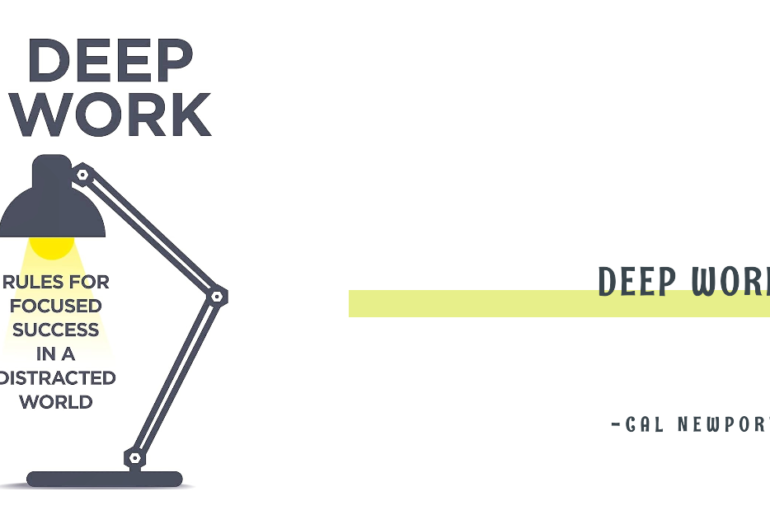Hitler and Gandhi both were extremists. But Gandhi chose humanity over anything else and propounded the path of Ahimsa as the way to serve mankind. On the other hand, Hitler chose racial superiority over humanity and believed that the superior race (the native Germans) was born to rule the inferior races.
In a bid to conquer the world and establish Nazi superiority, Hitler committed the deadliest atrocities humanity could ever think of. Hitler’s way of exterminating the Jews and the like could send shivers even down the nerves of steel.
The book Man’s Search For Meaning by Viktor E Frankl enumerates the deadly experiences of prisoners in the various small and big concentration camps of Dachau, Auschwitz, etc.
This book is a classic tribute to Hope from the Holocaust and the phoenix rising in each of us who chooses life before the flight.
Dr. Frankl, a psychiatrist, and professor by profession, fell into the hands of the Nazis after Austria was captured by Hitler in 1938. Dr. Frankl could have shifted to the USA, but due to his parents’ love (who lived in Vienna), he was resistant to doing so. This decision of Dr. Frankl cost him and his entire family and parents, who were brutally exterminated at the hand of Nazis in camps. He wasn’t even aware that this would lead him to one of the deadliest experiences one can to even dream of, from where even survival seemed to be one of the faintest things one could ever achieve.
Hope Over Anything Else
In this book, Dr. Frankl leads us to learn a lesson – It’s not the strongest of the species that survive, nor the most intelligent, but the one most responsive to change and the one filled with hope. He tells us that the secret of survival is to let hope override despair. He describes that the prisoners died less from the lack of food or medicine than from the lack of hope. He tells us how any prisoner in the camps, if at all, survived.
Meaning Of Life
Dr. Frankl propounded the Doctrine of Logotherapy (it came to be recognized as the 3rd Viennese School of Psychotherapy) – i.e., striving to find meaning in one’s life is man’s primary motivational force.
Life is not primarily a quest for pleasure or a quest for power but a quest for meaning.
Dr. Frankl saw 3 possible sources of meaning:
- In work (doing something significant)
- In love (caring for another person – He himself held on to the mental images of his wife and the thoughts of seeing her after the war, through the darkest days in Auschwitz).
- In Courage
Dr. Frankl argues that the forces beyond your control can take away everything you possess except your response to the situation.
Experiences in the Concentration Camps:
The tale vividly describes everyday life and the torments experienced by an average prisoner in the camps.
The people inside the camps are mostly seen in 3 categories:
1. The Average prisoner – who was nothing but a number assigned to each one of them on admission.
2. The Capos – the prisoners with special privileges who acted as trustees to the camp authorities. Generally, the most brutal of the prisoners were chosen for the job.
3. The SS men – the camp guards.
Inside the camps, there was, on one hand, an unrelenting struggle for daily bread by the average prisoner; on the other, there were never hungry capos.
Periodically there were selections of sick and feeble prisoners, unfit for work, to be taken to 1 of the big camps, fitted with gas chambers, for extermination. This selection process was accompanied by a lot of hue and cry since each one fought another to get one’s name struck off that list and put another in its place since the number of prisoners to be sent was fixed.
So on average, only those prisoners who managed to keep the game of survival, who had lost all scruples in their fight for existence and were ready to use any means to survive.
Dr. Frankl describes the mental reactions of a camp inmate in 3 phases:
1. The period following his admission.
2. The period when he is well entrenched in the camp routine.
3. Period following his release and liberation.
Phase 1: Period following his admission- Shock.
Hundreds of persons packed into train compartments were brought into the camps where they were deprived of all their belongings, shaven from tip to toe, and packed in crowded sheds where even a proper squat was a luxury.
The prisoners had to work day in and day out in the biting cold of Europe with not even bare minimum clothing. The shoes were often soggy with mud/dirt and wet, numbing the feet and making it even more difficult to work.
The Capos and the SS Guards were ruthless and punished the prisoners for even the slightest faults. Dr. Frankl learned that in medical science, textbooks fail to tell the exact ability of the human body. The way the prisoners were treated spoke heaps of the extent of extreme to which the human body was capable of going.
Punishment, beatings, ruthless working conditions, undernourishment, lack of sleep, no proper clothing, etc., formed the prisoners’ daily routine. 4 And then there were taking off of feeble ones to the gas chambers. The only way to possibly avoid it was to look as young as possible, to which a daily shave was an option.
Phase 2: Being well entrenched in the camp routine – Apathy accompanied this phase.
Reality dimmed, and all efforts and emotions centered on only one task, i.e., to save one’s own life and one’s friend’s (if possible).
As some in the camps often described, this phase was a retreat to a more primitive form of mental life where survival was the only desire. The inmates were adapted to the extremely small rations of watery soup and bread given to them, just enough to keep the skin over the bones.
The level of apathy was such that when a prisoner died, the inmates searched for items useful for their further survival rather than having emotions of grief. Not even enough medicines were supplied to the sick. Only a few tablets of painkillers often came, which were strategically divided and given to those with a better chance of living.
Often Dr. Frannkl used to take the warm comfort from the mental imageries of his wife to bide by the rough conditions. This made him understand how a man who has nothing left in this world still may know bliss in the contemplation of his beloved. “The salvation of a man is through love and in love.”
Dr. Frankl also says that – To develop a sense of humor and seeing things in a humorous light is some kind of a trick learned while mastering the art of living.
Everything in the camp that was not connected with the immediate task of keeping oneself and one’s closest friends alive lost its value. Everything was sacrificed to this end. The corpses of fellow inmates crawling with lice didn’t bother them; only the steps of the passing guards did.
This phase also lets one give control of his life to fate, rather than making decisions often.
Phase 3: Psychology of a prisoner post-liberation.
Freedom, the word often said by prisoners in their camp life, had lost its meaning. Its reality didn’t penetrate into their consciousness, they couldn’t grasp the fact that freedom was theirs (post-WW II). No one could appreciate the beauty and sparkle of the outside world.
Everything appeared unreal. The only respondent to freedom was the body. It ate ravenously, talked for hours, and stuff like that.
Dr. Frankl says that the liberated prisoners needed spiritual care more than ever to relearn the conventions and way of life of civil society, or else a sudden release of mental pressure could damage one’s moral and spiritual health. He uses the analogy of a diver suddenly getting released from his pressure chamber.
They, now being free, thought they could use their freedom licentiously and ruthlessly. They justified their behavior with their terrible experiences.
Bitterness and disillusionment accompanied the prisoners when they returned to their former life.
Lessons given by Dr. Frankl via his experiences:
- Dr. Frankl quotes the words of Friedrich Nietzsche – He who has a Why to live for can bear almost any How. – Any attempt to restore a man’s inner strength in the camp had 1st to succeed in showing him some future goal, i.e., a Why, in order to strengthen them to bear the terrible How of their existence.
- Love is the highest goal to which a man can aspire.
- If you can’t change a situation, change yourself.
- One that can’t kill you makes you stronger.
***
Through his book, Dr. Frankl tells us what a man is capable of – He is that being who invented the gas chambers of Auschwitz; however, he is also that being who entered those gas chambers upright, with the Lord’s prayers on his lips. We truly get to know the fact that ‘Knowledge without integrity can lead to a catastrophe.’
About Victor Emil Frankl
Viktor Emil Frankl (26 March 1905 – 2 September 1997) was an Austrian neurologist, psychiatrist, philosopher, writer, and Holocaust survivor. He was the founder of logotherapy, a school of psychotherapy that describes a search for a life’s meaning as the central human motivational force. Logotherapy is part of existential and humanistic psychology theories. Frankl published 39 books. The autobiographical Man’s Search for Meaning, a best-selling book, is based on his experiences in various Nazi concentration camps.

Discover more from talkingconcept.com
Subscribe to get the latest posts sent to your email.




